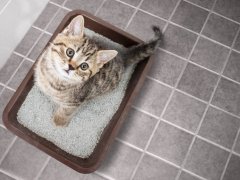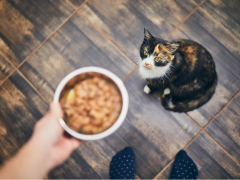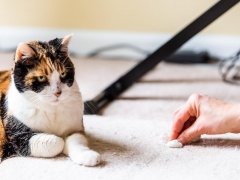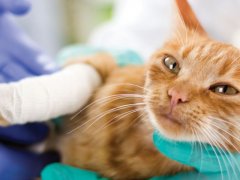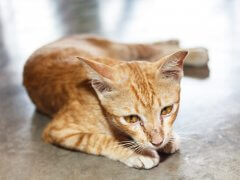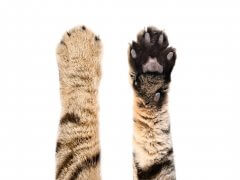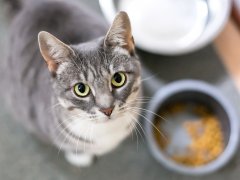Heavy breathing
Panting
Bad breath
Food allergies
Blood in urine
Blood in stool
Vomiting
Diarrhea
Spaying
Neutering
Vaccination
Heavy breathing
Heavy breathing in cats presents in different ways, including panting, labored breathing, and more. It may indicate a respiratory problem such as infection, inflammation, parasites, trauma, or cancer. It can also occur with pain, stress, heart disease, fever, and metabolic issues. Heavy breathing should always be investigated by a veterinarian.
Panting
Panting in cats may occur due to one of many health conditions: pain, stress, fever, lung disease, or heart disease. Panting is a cause for concern in cats and requires emergency veterinary care. Treatment will often involve oxygen therapy, medication, and X-rays.
Bad breath
Bad breath in cats is often a sign of a dental issue, although it could be a sign of another underlying condition.
Food allergies
Food allergies in cats include commonly eaten proteins such as beef, chicken, and fish, which are used in many commercially available cat foods. Food allergy treatment often requires a food trial with a novel protein or hypoallergenic diet for at least six weeks.
Blood in urine
Blood in urine, also known as haematuria, is a serious condition for cats, particularly male sedentary cats. This symptom falls under the umbrella of feline lower urinary tract disease (FLUTD) and may be caused by anything from an infection, bladder stones, or cystitis. Cats with blood in their urine must have their urine analyzed to investigate the cause. They will likely need a course of medication and food recommendations from their vet.
Blood in stool
Blood in a cat’s stool may vary in amount and color depending on the exact cause. Causes range from stress and diet changes to more serious diseases, such as inflammatory bowel disease and cancer. Always contact your veterinarian for advice if you see blood in your cat’s stool.
Vomiting
Vomiting occurs when the cat’s stomach evacuates food through the mouth. Occasional vomiting may not be a cause for concern, but frequent vomiting and additional symptoms can indicate a serious medical issue. Mild cases of upset stomach may resolve on their own or with a temporary bland diet for a couple of days, while more severe cases may require anti-vomiting medication, blood testing, and imaging. Contact your vet for advice if your cat is vomiting frequently, is lethargic, or if there are other concerning symptoms.
Diarrhea
Diarrhea, or abnormally soft and unformed stools, is a very common issue in cats. Mild cases are often caused by a diet change or a dietary indiscretion—when cats eat something they shouldn’t have—but more severe cases may indicate parasites, food intolerance, or inflammatory bowel disease. It is sometimes treated with prescribed probiotics and a sensitive, highly digestible diet. More severe cases may require fecal analysis, blood testing, and imaging.
Spaying
Spaying is a key procedure for female cats designed for population control and cat health. Cats should be spayed to lower the risk of injury, pregnancy complications, infection in their womb (pyometra), and cancer of their reproductive system. It is generally recommended for female cats to be spayed between 4-6 months of age.
Neutering
Neutering is a key procedure for male cats designed for population control and cat health. It lowers the risk of pregnancy, behavioral problems, medical conditions, and injury. Neutering is usually a day procedure, requiring general anesthetic at your veterinary clinic. Male cats should be neutered between 4-6 months of age, but your vet will provide an individual timeline according to your cat’s medical history.
Vaccination
Cats need vaccinations to protect them against preventable diseases including cat flu, feline panleukopenia, feline leukemia, and rabies. Your vet will tailor your cat’s vaccines depending on what part of the world you live in and your cat’s lifestyle. Kittens require a primary vaccination course and booster vaccinations throughout their life to keep them safe.

 Cat Weight Calculator
Cat Weight Calculator
 Cat Pregnancy Calculator
Cat Pregnancy Calculator
 Cat Symptom Checker
Cat Symptom Checker
 Cat Insurance
Cat Insurance
